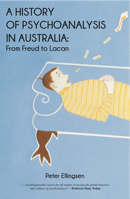Writers read to write. It is words in before words out. Without the reading and the waiting that goes with it, nothing useful emerges. Who knows where the inspiration comes from: it arrives unexpectedly on tracks laid down – not by a wish to do good – but an urge to address a nagging question; […]

Can’t Buy Me Love
Times are tough and the Government is giving us money. We are encouraged to spend it. I can’t help thinking that Rudd’s economic arousal package should come with a health warning – ‘This money is to stimulate the economy, but don’t expect it to make you happy. Money can directly damage every aspect of your […]

Dr Cake and John Keats
Jane Campion’s new film, Bright Star, follows the last three years of John Keats’s life, from the time he fell in love with Fanny Brawne, to his death of tuberculoses in Rome in 1821. It is a love story, and by all accounts, a well told and moving one. Keats is one of the great […]

To What Extent is the World Going Mad?
On stage in an oversize army shirt below a mass of greying wavy hair was the artist, Michael Leunig. He had a felt pen in one hand and spoke off the cuff. In the audience, using drug company ballpoints to write on drug company notepads were hundreds of psychiatrists. Apart from the note-taking – thought […]

A Tribute to Freud
While it is theorised within an inch of its life, psychoanalysis is a practical business. It abounds in ideas, but can only be known the way Milton knew “every alley” of his “wilde wood”; that is, by walking through it. As Freud insisted, you need to do it. But do what exactly? Talk, of course, […]

Secrets of the Soul
At the end of his survey of psychoanalysis – a journey that weaves in and out of some of the most exciting ideas of the past 150 years – Eli Zaretsky examines the body of Freud’s offspring and pronounces it ailing but alive. There is no corpse, but after so much battering, abuse and wayward […]

Lifestyle
Literature and psychoanalysis share an interest in neurosis. Many great novels are a study of neurotic character. From Emma Bovary to Holden Caulfield we are in the world of neurotics, that is, people who, to some extent, misconstrue their surroundings, particularly their relationships. Emma, the Madame Bovary of Flaubert’s novel, sees her 19th century life […]

What is Psychoanalysis?
Rather than the diagnostic categories as such, which are conceptual tools, psychoanalytic treatment is founded upon the work of exploration and analysis of the patient’s unconscious. It is the unconscious which contains the representatives of those desires and forms of satisfaction that the patient rejects and of which he or she does not want to […]

Our New Dark Ages
Freud’s masterful paper, Mourning and Melancholia (Freud, 1915), is famous for its revolutionary rethinking of loss. The intuition that melancholia is not just a transitory and necessary withdrawal from the world like mourning, but a tragic attempt to keep alive a lost loved one has reverberated down the decades since Freud wrote it nearly a […]

How Are We To Live
Progress is a funny thing. Not just because, as the French say, ‘the more things change the more they stay the same’, but because some aspects of us are resistant to updating. Despite my affection for vinyl, turntables and valve amplifiers, this does not appear to be true of music. Not only have the old […]
